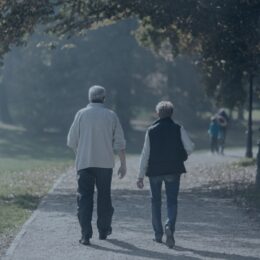
By Christian Puls OTR/L
Remember when you were a child? You could trip, slip, fall, and scuff your way across the playground without shedding a tear and bounce back up like nothing happened.
As the years pass, it becomes much more difficult to bounce back from these falls without the possible consequences becoming significantly more severe. A simple slip on the ice while walking to get the mail could result in a broken hip, wrist, or shoulder. While walking across the living room, a misstep on a throw rug could result in a possible head injury.
According to the Center for Disease Control (CDC), approximately 3 million older people are treated in the emergency room for falls each year, with 800,000 hospitalized because of a fall-related injury. In addition, 95 percent of hip fractures are caused by falls, according to “Facts about Falls” from the CDC.
With these possible severe consequences, you may be wondering, "What could I do to prevent these falls from occurring? And if I do fall, what should I do?"
WHAT CAN I DO TO PREVENT FALLS?
Always wear appropriate footwear when walking. If you have hardwood floors or slick linoleum, wearing socks would not be the most appropriate. Slippers with a heel or shoes with good tread are much safer.
Use appropriate mobility devices.
If you use a cane, walker, or 4 wheeled walker (rollator) with a seat, use it safely and appropriately in all circumstances. Keep the device within reach so that when it is time to walk you don’t have to take steps without it.
Outdoors/winter conditions.
Make sure that trip hazards such as large cracks, tree roots, or other natural occurrences are cleared from walkways. During winter have your driveway and sidewalks shoveled and de-iced to reduce slips.
Remove throw rugs and other trip hazards.
Throw rugs and obstacles on the floor or in areas where foot traffic is common can cause falls to occur and can usually be easily moved or removed.
Cellphones/Emergency devices.
Keeping a cellphone or emergency device such as a Life Alert with you can be the difference between being able to contact emergency services and being stuck on the floor for hours, or in some cases, days.
Don't furniture walk or furniture surf.
Grabbing onto walls, chairs, tables, etc., while walking can actually increase your risk for falling.
See your doctor.
Having your vision and current medications frequently checked is a good way of addressing possible issues before they occur.


